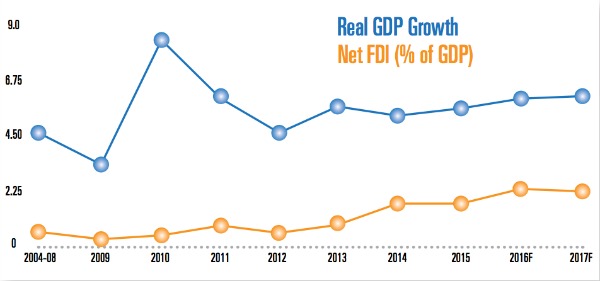Kenya is generally considered one of the most promising markets in Africa. It is currently the continent’s eighth largest economy. Its strategic location in East Africa makes it an attractive entry point for foreign companies expanding into the region. It also has one of the world’s most highly diversified populations, including over 70 distinct ethnic groups.
While Kenya has a relatively stable political and economic climate, it has faced increasing terrorist attacks over the past fve years. Economically, the primary impact has been a noticeable decline in tourist arrivals, but future outside investments may hinge, in part, on resolving these issues.
Residential Market
To help fill significant urban housing gaps, the government provides incentives to private developers who are increasingly taking a high-density approach to multi-unit housing. In contrast, the prime residential market in Nairobi and Mombasa is showing signs of slowing down, partly due to oversupply, but also in reaction to security concerns.
Commercial Market
The increasing spending power of Kenyan consumers is driving demand for retail outlets, including the recent debuts of foreign brands like Carrefour, Game and Debenhams. In contrast, office space offers a mixed story, with supply expected to exceed demand in 2016 for some segments like Grade B space.
Infrastructure
Notable megaprojects in Kenya include the LAPSSET Project (connecting a new port and oil refinery in Lamu with new road and rail networks, airports and oil pipelines), the Mombasa-Nairobi-Kampala-Kigali-Juba Railway, and Konza Technology City (modeled on California’s Silicon Valley and intended to provide nearly 100,000 technology jobs.)









